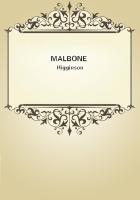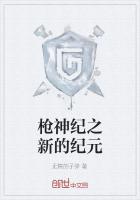And he was well repaid for the self-denial her absence entailed, when Antonia came back to him, alert, self-reliant, industrious, an intelligent and responsive companion, a neat and capable housekeeper, who insensibly gave to his home that American air it lacked, and who set upon his table the well-cooked meats and delicate dishes which he had often longed for.
John, the youngest boy, was still in New York finishing his course of study; but regarding Isabel, there seemed to be a tacit relinquishment of the purpose, so inflexibly carried out with her brothers and sister. Isabel was entirely different from them. Her father had watched her carefully, and come to the conviction that it would be impossible to make her nature take the American mintage. She was as distinctly Iberian as Antonia was Anglo-American.
In her brothers the admixture of races had been only as alloy to metal. Thomas Worth was but a darker copy of his father.
John had the romance and sensitive honor of old Spain, mingled with the love of liberty, and the practical temper, of those Worths who had defied both Charles the First and George the Third. But Isabel had no soul-kinship with her father's people. Robert Worth had seen in the Yturbide residencia in Mexico the family portraits which they had brought with them from Castile. Isabel was the Yturbide of her day. She had all their physical traits, and from her large golden-black eyes the same passionate soul looked forth. He felt that it would be utter cruelty to send her among people who must always be strangers to her.
So Isabel dreamed away her childhood at her mother's side, or with the sisters in the convent, learning from them such ****** and useless matters as they considered necessary for a damosel of family and fortune. On the night of the Senora Valdez's reception, she had astonished every one by the adorable grace of her dancing, and the captivating way in which she used her fan. Her fingers touched the guitar as if they had played it for a thousand years. She sang a Spanish Romancero of El mio Cid with all the fire and tenderness of a Castilian maid.
Her father watched her with troubled eyes. He almost felt as if he had no part in her. And the thought gave him an unusual anxiety, for he knew this night that the days were fast approaching which would test to extremity the affection which bound his family together. He contrived to draw Antonia aside for a few moments.
"Is she not wonderful?" he asked. "When did she learn these things? I mean the way in which she does them?"
Isabel was dancing La Cachoucha, and Antonia looked at her little sister with eyes full of loving speculation. Her answer dropped slowly from her lips, as if a conviction was reluctantly expressed:
"The way must be a gift from the past--her soul has been at school before she was born here. Father, are you troubled?
What is it? Not Isabel, surely?"
"Not Isabel, primarily. Antonia, I have been expecting something for twenty years. It is coming."
"And you are sorry?"
"I am anxious, that is all. Go back to the dancers. In the morning we can talk."
In the morning the doctor was called very early by some one needing his skill. Antonia heard the swift footsteps and eager voices, and watched him mount the horse always kept ready saddled for such emergencies, and ride away with the messenger. The incident in itself was a usual one, but she was conscious that her soul was moving uneasily and questioningly in some new and uncertain atmosphere.
She had felt it on her first entrance into Senora Valdez's gran sala--a something irrepressible in the faces of all the men present. She remembered that even the servants had been excited, and that they stood in small groups, talking with suppressed passion and with much demonstrativeness. And the officers from the Alamo! How conscious they had been of their own importance! What airs of condescension and of an almost insufferable protection they had assumed! Now, that she recalled the faces of Judge Valdez, and other men of years and position, she understood that there had been in them something out of tone with the occasion. In the atmosphere of the festa she had only felt it. In the solitude of her room she could apprehend its nature.
For she had been born during those stormy days when Magee and Bernardo, with twelve hundred Americans, first flung the banner of Texan independence to the wind; when the fall of Nacogdoches sent a thrill of sympathy through the United States, and enabled Cos and Toledo, and the other revolutionary generals in Mexico, to carry their arms against Old Spain to the very doors of the vice-royal palace. She had heard from her father many a time the whole brave, brilliant story--the same story which has been made in all ages from the beginning of time. Only the week before, they had talked it over as they sat under the great fig-tree together.
"History but repeats itself," the doctor had said then; "for when the Mexicans drove the Spaniards, with their court ceremonies, their monopolies and taxes, back to Spain, they were just doing what the American colonists did, when they drove the English royalists back to England. It was natural, too, that the Americans should help the Mexicans, for, at first, they were but a little band of patriots; and the American-Saxon has like the Anglo-Saxon an irresistible impulse to help the weaker side. And oh, Antonia! The cry of Freedom! Who that has a soul can resist it?"
She remembered this conversation as she stood in the pallid dawning, and watched her father ride swiftly away. The story of the long struggle in all its salient features flashed through her mind; and she understood that it is not the sword alone that gives liberty--that there must be patience before courage; that great ideas must germinate for years in the hearts of men before the sword can reap the harvest.















